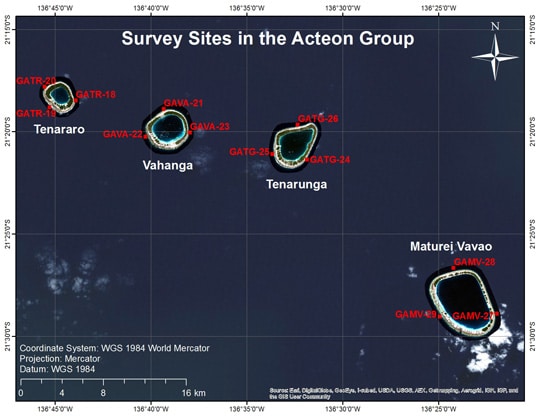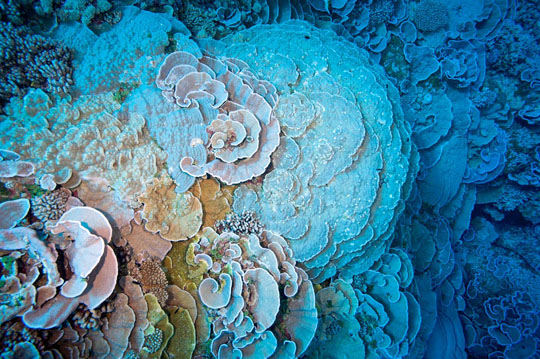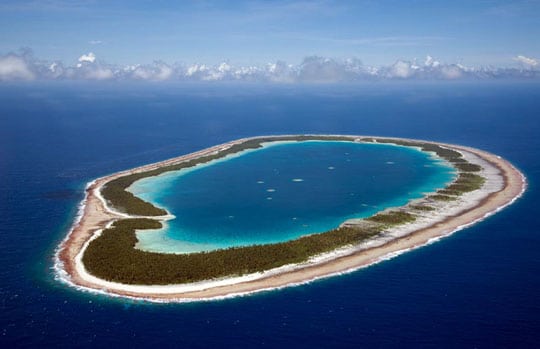We have arrived in Mangareva, having just completed surveys in the remote Acteon Group. Each of the four atolls we surveyed was small, about 5 to 10 km2 including the lagoon. This meant we were able to do all our Acteon surveys dives in one day on each atoll. We picked similar survey spots – one windward (exposed) and two leeward (protected) reefs on each island. But each island was unique.

The first thing worthy of noting was the coral cover was high. The bottom was carpeted with corals – nearly 100% coral cover. But the type of corals differed between locations. The reef slope on one reef was formed by large flower-like (foliaceous) colonies (Montipora), some 4-5m in diameter; some reefs had shingle-like sheets (Porites) or tables (Acropora) of coral, and others had tall mounds with pillar-like branches (Pavona). From site to site, different species of coral were dominant and we recorded some corals at only one or two sites during our Acteon surveys.

Maybe the most puzzling observation we made during our Acteon surveys was that with all of the healthy coral, there were hardly any fish. We saw a low abundance of fish on every reef in the Acteon group and the fish that we did see were usually juveniles.

We have had only one day of diving in Mangareva and in terms of the fish and coral these reefs are different from anything we have seen so far.
(Photos by: 1-Amanda Williams, 2,3 Phil Renaud)